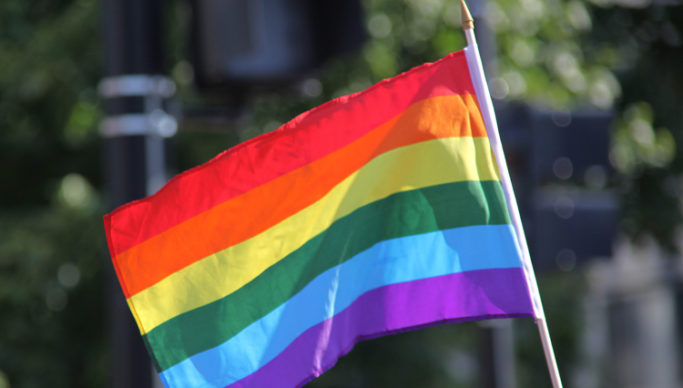
U.S. City Led by Muslims Bans Pride Flags, Sparking ‘a Sense of Betrayal’
- By C Barnett --
- 07 Aug 2023 --
A multicultural enclave of Detroit, Michigan, that attracted international attention in 2015 for becoming the first in the U.S. to elect a Muslim-majority city council, has become the focal point of a fierce controversy over a recent law banning Pride flags intended to celebrate the LGBTQ+ community from being flown on city property.
On June 13, 2023, the city council of Hamtramck, population 28,433, voted unanimously to outlaw gay-Pride flags from being displayed on city property. The legislation ignited a political and cultural firestorm.
Numerous residents expressed their disappointment with their city, as it had predominantly resisted the Islamophobic discourse that played a pivotal role in the campaign of former Republican presidential candidate Donald Trump.
“There’s a sense of betrayal,” said the city’s former Polish-American mayor, Karen Majewski. “We supported you when you were threatened, and now our rights are threatened, and you’re the one doing the threatening.”
Polish and Ukrainian Catholics held political dominance in Hamtramck, a city of just 2.1 square miles, for approximately a century. By 2013, however, they were largely supplanted by Muslim Bangladeshi and Yemeni immigrants.
Following a span of diverse representation on the council for several years, there is now a perception of irony in having an all-male, mostly Muslim-elected government that does not mirror the city’s demographic composition.
The Hamtramck City Council resolution, which additionally forbids the display of flags with ethnic, racist, and political ideologies, arises amid global challenges to LGBTQ+ rights. Similar bans have been enacted in various U.S. cities, primarily led by politically conservative Americans, often of white background.
The resolution states that the city is required to display not only the American flag but also flags symbolizing the international diversity of the region. Further, it contends that each religious, ethnic, racial, political, or sexually oriented group is already represented by the flag of the country to which it belongs.
Prior to the legislation’s passage, during the allocated public comment period, numerous community members voiced their concerns about the resolution. One individual, who disagreed with the proposal, said that the city council’s attempt to equate the LGBTQ+ Pride flag with symbols of hate is a local attack on the community, despite the flag being “a symbol of progress and love.”
Amer Ghalib, who made history in 2021 by becoming the first Yemeni-American mayor (he secured 67 percent of the vote in Hamtramck’s most recent mayoral election), told The Guardian in a recent interview that he was committed to governing impartially for all citizens. He expressed his belief, however, that LGBTQ+ supporters had exacerbated tensions by “forcing their agendas on others.”
“It is laughable to suggest that because someone is not given special recognition by the government, their representatives are acting as if they don’t matter,” stated a June 20 article in National Review, a prominent conservative magazine.
“But these criticisms,” the article added, “also reveal that progressive misunderstandings of how religious people approach politics apply to Islam as well as Christianity.”



















